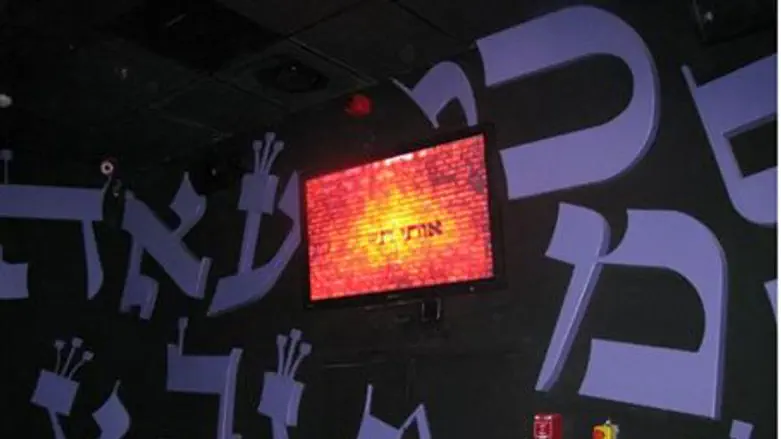Interest is growing in the 5th Annual Conference for Devotees of the Holy Tongue, a term for pre-modern Hebrew, to be held in Jerusalem this coming Wednesday.
One of the purposes of the get-together is to encourage Torah study based on the linguistics of Hebrew. Most commentaries and contemporary discussion of Torah thoughts do not revolve around linguistics, causing those who are interested in this topic to feel that they are alone in the fray. The growing numbers of people interested in Hebrew are now able to share ideas and enhance the study of this topic.
Rabbi Naftali Tzvi Yehuda Berlin, the 19th-century Torah giant known as the Natziv of Volozhin (Yeshiva) , was once asked by a Haskalah expert, “How is it that you know Hebrew grammar and linguistics so well? We study it full-time, but you only study Bible and the like – so where does your Hebrew expertise come from?”
Rabbi Berlin answered, “I’ll give you an example. A little boy went into a shipping plant and watched how the workers packed up items for shipment, using rope and paper to wrap and secure the boxes. He asked the boss, ‘How much does the buyer have to pay for all that rope?' The boss laughed and said, ‘He pays nothing, it comes for free.’ The boy was impressed, and soon came up with what he thought was a great plan. He returned the next day and asked the boss, ‘Please give me 100 feet of rope, if you don’t mind.’ The boss said, ‘That will cost you---‘ at which point the boy interrupted and said, ‘But I thought you said it was for free!’ The man said, ‘You misunderstood. I meant that if one buys something from us, we wrap it up for him – and the rope comes for free. But if you take only the rope, you must pay.’”
Rabbi Berlin continued, “Similarly, Torah scholars who spend their days in all aspects of Torah get to know the rules of Hebrew by the by, with barely any effort – but people like you who study only Hebrew and nothing else, have to work very hard for their knowledge.”
Rabbi Berlin was one of several Torah scholars whose commentary was at least partially based on the ins and outs of the Hebrew language. Others of this ilk include Rav Saadiah Gaon, the Arukh, Rashi, Rabbeinu Tam, Rashbam, Ibn Ezra, Maimonides, Nachmanides, Ramchal, the Vilna Gaon, Rabbi Samson Rafael Hirsch, and many more.
The nucleus of the group, which includes lovers of Torah from across the religious spectrum, began to grow during the five years that Uriel Frank of Mitzpe Yericho wrote a weekly column on various aspects of the Hebrew language in the Torah. He corresponded by email with hundreds of people who contacted him with questions, comments and suggestions - and one day, invited them all to gather together for a conference on their common interest.
Topics to be discussed or lectured upon at this year’s gathering include: “Ridding our language of idol-worship,” the Keter Aram Tzova Bible (the earliest extant manuscript), Aramaic influence on the Mishna, and more.
Last year’s conference, before an audience of 80, featured talks on: What is Behind the Letters?, Smichut (a pair of words in the construct state, such as beit-evel, lit., a house of mourning) and when it does not apply (such as in Barukh shem kvod malchuto); why Passover is sometimes called the Festival of Matzot and not simply Pesach; punctuation of the Mishna; cantillation notes; Rav Nachman’s famous wife Yalta; ten different explanations of the phrase “the Holy Tongue,” and more.
The conference will be held at 1:15 PM on Wednesday, at the Ohel Moshe Synagogue in Sanhedria Murchevet. Entrance is free.
